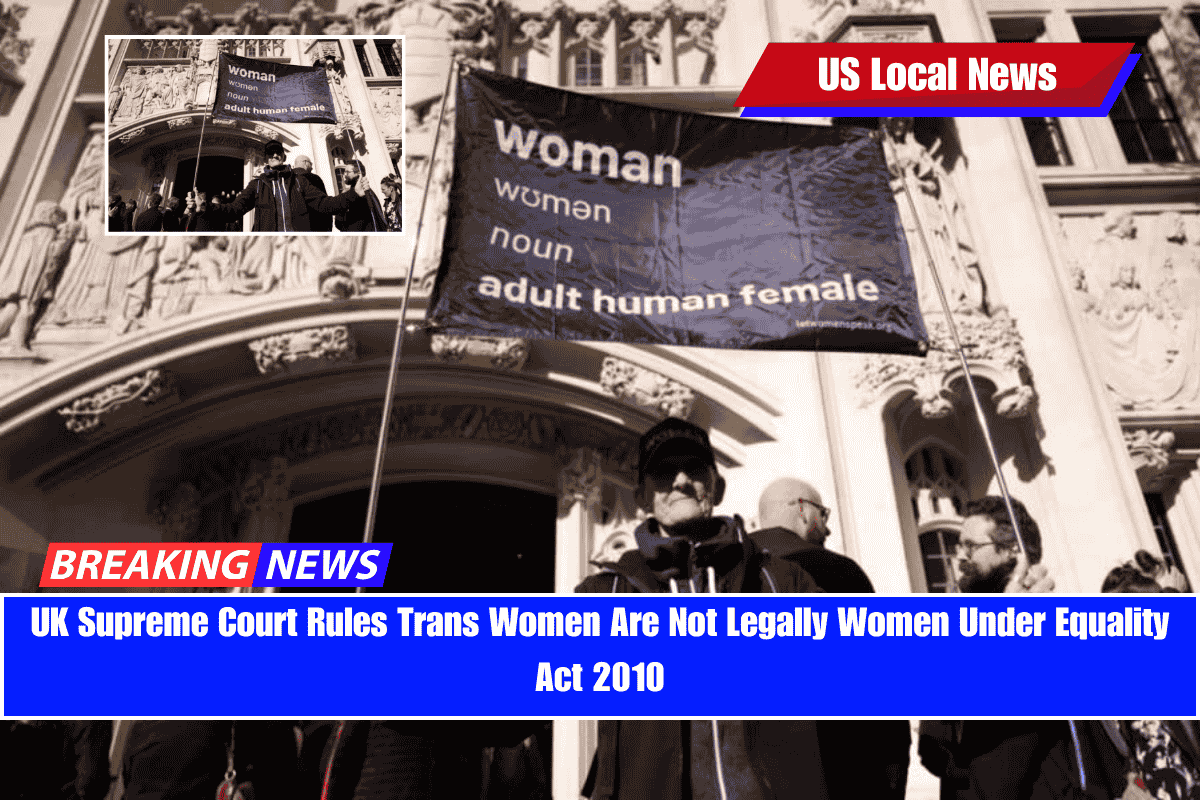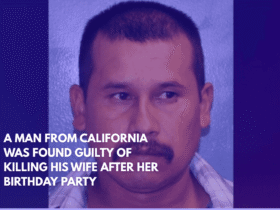In a landmark decision issued Wednesday, the Supreme Court of the United Kingdom has ruled that, under the Equality Act 2010 (EA 2010), the legal definitions of “sex,” “man,” and “woman” refer strictly to biological sex, not gender identity.
The ruling concludes that trans women are not legally recognized as women for the purposes of protections and rights afforded specifically to biological women under the act.
This judgment delivers a significant shift in the legal landscape of sex-based protections in Britain, while also clarifying the scope of gender recognition rights.
What the Court Ruled
The Supreme Court stated:
“The meaning of the terms ‘sex,’ ‘man,’ and ‘woman’ in the Equality Act 2010 refer to biological sex, as any other interpretation would render the act incoherent and impracticable to operate.”
It also found that even individuals who hold a Gender Recognition Certificate (GRC) indicating a legal change to female gender status do not fall under the legal definition of a ‘woman’ for the purposes of sex-based provisions under the Equality Act.
This means that where rights or positions are legally reserved for women, they now only apply to biological women, regardless of a person’s gender reassignment status.
Background of the Case
The case was brought forward by the campaign group For Women Scotland, challenging the Scottish government’s interpretation of gender rights.
The Scottish Parliament, in 2018, passed the Gender Representation on Public Boards Act, which aimed to increase women’s representation on public boards and included trans women in its definition of “woman.”
Under that legislation, individuals who were:
- Living as a woman
- Undergoing or having undergone gender reassignment
- Holding a GRC indicating female gender
were treated as women for the purposes of representation. For Women Scotland argued that this redefinition undermined sex-based protections originally enshrined in the Equality Act 2010, and could affect biological women’s rights and access to opportunities.
The UK’s highest court ultimately agreed, ruling that the Scottish government’s statutory guidance was legally incorrect.
What This Means Going Forward
This ruling establishes that:
- Trans women are not included in the legal definition of “woman” under the Equality Act.
- Sex-specific rights and spaces — such as public board positions reserved for women — must apply only to biological women.
- Public bodies across the UK must now comply with this interpretation, potentially requiring them to revise policies, guidance, and representation quotas.
However, the court also clarified that trans people still retain protections under the Equality Act, specifically through the characteristic of gender reassignment. This means they are still protected from:
- Direct and indirect discrimination
- Harassment
- Sex-based discrimination, if they are perceived to be a woman
Reactions and Future Impact
Supporters of the ruling, including For Women Scotland, view the outcome as a victory for clarity and fairness in sex-based rights, ensuring that spaces and opportunities for biological women remain protected.
Opponents and LGBTQ+ advocacy groups have raised concerns that the ruling could fuel restrictions on trans individuals, especially in public life and policy areas where gender identity had previously been recognized.
The decision may also trigger legislative reviews around gender recognition laws, particularly in Scotland, which has already clashed with the UK government over gender self-ID policies.
This case marks a defining moment in the ongoing debate between gender identity and sex-based rights, setting a binding legal precedent across England, Scotland, Wales, and Northern Ireland.











Leave a Reply